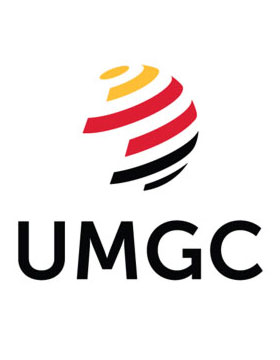"Over There" to air on MPT on December 31
In honor of University of Maryland Global Campus’s (UMGC) 75th Anniversary, Maryland Public Television (MPT) will air an encore presentation of the award-winning documentary, “Over There: The Adventures of Maryland’s Traveling Faculty,” at 2:30 pm ET on New Year's Eve, December 31. The new version features an updated greeting from UMGC President Gregory W. Fowler and will subsequently be available on MPT’s website.
The documentary brings to life UMGC’s historic mission of educating military personnel stationed overseas by following the path of Maryland’s “Academic Foreign Legion” who adopted “Have Syllabus Will Travel” as their motto and hopped from military base to military base, sometimes in war zones, to offer college classes to the troops.
Inspired by a reunion hosted by UMGC of the Overseas Marylanders Association in 2013, an alumni group of former faculty members and administrators that served abroad, the documentary was produced by Emmy-winning filmmaker Lauren Cardillo who used interviews with more than 60 past and present professors, historic video footage and still photographs to tell UMGC’s unique story. UMGC Senior Vice President Michael Freedman, served as executive producer and oversaw the four-year project.
The documentary about these academic vagabonds first aired on Maryland Public Television in 2018 and garnered the film two Television Internet & Video Association (TIVA) Peer Awards: the Gold Award for scriptwriting and the Bronze Award for non-fiction documentary.
The documentary opens with a boat trip by veteran professors on the Rhine-Neckar river at Heidelberg, Germany, the birthplace of Maryland’s overseas program, then hopscotches around the world allowing faculty members, administrators and former students to tell their stories of teaching and learning—sometimes under harrowing conditions.
In the film, former UMGC staff member Lisa Henkel relates a gripping account of a rocket attack on the U.S. Army base in Kandahar, Afghanistan, during a UMGC graduation ceremony, which, in seconds, transformed celebrating students and speakers into soldiers and generals.
“For a filmmaker, finding a story like this is like striking gold,” said Cardillo during a panel discussion after the documentary’s initial screening in 2018. “Here I could tell the story of this legacy of people who got themselves from country to country—every eight weeks—in the days before faxes and cellphones and computers. Somehow it all worked.”
Originally the College of Special and Continuation Studies branch of the University of Maryland College of Education, UMGC was the only institution in 1949 to answer the Defense Department’s call to provide an education to American military personnel overseas, first in Europe and then in Asia. In the ensuing decades, when competition for those Defense Department contracts became steep, UMGC has maintained its position largely on the reputation of its faculty members overseas, said John Golembe, former dean and director of the university’s Europe Division.
“There were special faculty members who had the desire to go because they felt that those were the students who needed it most,” said Paula Harbecke, a former director of both UMGC’s Europe and Asia divisions. She described the complexity of moving professors to military bases around the world, often on eight-week assignments—and sometimes into dangerous situations, such as the war in the Balkans in the 1990s—as the continuous reshuffling of a deck of faculty-member playing cards.
“I need an anthropologist—in Iceland—because they have requested an anthropologist [there,]” she said. “I look at my playing cards” and find an anthropology professor who could fill that assignment. “Whether it was Iceland . . . Korea . . . the Balkans, we were trying to ensure the faculty was there when they were needed.”
Alumnus Rich Blewitt, who represented former students at the film’s post-screening discussion, said that during his time as a Navy enlistee in Japan, UMGC truly turned his life around.
“I had bombed out of college as a freshman,” he said. “I was pretty down.”
Then one day while walking around the base, he said he spotted a UMGC office and a recruiter enticed him to walk in.
“That started a 40-year love affair with UMUC (known as University of Maryland University College—UMUC—until the name was changed to University of Maryland Global Campus—UMGC—in 2019),” said Blewitt, who today is both a successful businessman and past chairman of UMGC’s Board of Visitors. “That day in April 1969 saved my life and created an appreciation I will never stop having.”
Golembe and former university vice president Julian Jones, both trained as historians, said they were aware that UMGC was making history with this ground-breaking overseas program. For Golembe, it was about reaching these students who probably would never have had a chance at a college education without it, thus changing their lives and the lives of everyone around them.
“We were constantly thinking about how we could preserve this as history,” Jones said. “We were almost thinking of it as Greeks thought about history. You want to preserve the great deeds of people in the past to educate those in the present and future. That is what I feel this documentary has achieved.”
President Fowler’s opening greeting in the new version of the documentary emphasized that serving the military is in the university’s DNA.
“For seventy-five years, UMGC has focused on the needs of adult and military learners here in Maryland and around the world,” said Fowler. “Since “Over There” premiered in 2018, our name has changed but our mission remains the same, and I am grateful to be part of this community of innovators and pioneers.”
